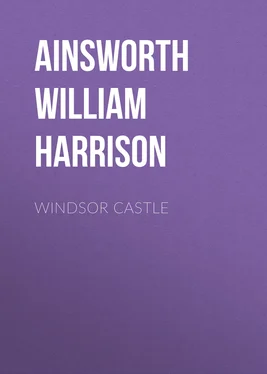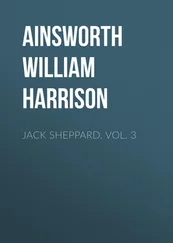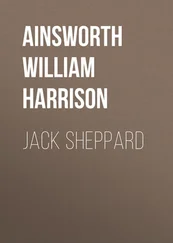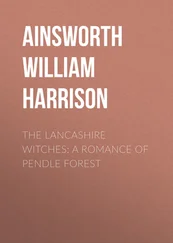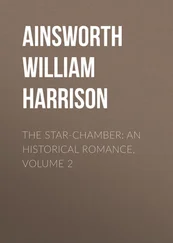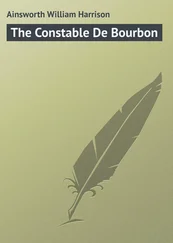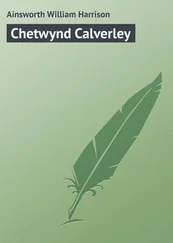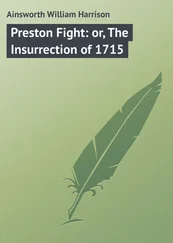William Ainsworth - Windsor Castle
Здесь есть возможность читать онлайн «William Ainsworth - Windsor Castle» — ознакомительный отрывок электронной книги совершенно бесплатно, а после прочтения отрывка купить полную версию. В некоторых случаях можно слушать аудио, скачать через торрент в формате fb2 и присутствует краткое содержание. Жанр: Альтернативная история, literature_19, Европейская старинная литература, foreign_prose, Исторические приключения, на английском языке. Описание произведения, (предисловие) а так же отзывы посетителей доступны на портале библиотеки ЛибКат.
- Название:Windsor Castle
- Автор:
- Жанр:
- Год:неизвестен
- ISBN:нет данных
- Рейтинг книги:5 / 5. Голосов: 1
-
Избранное:Добавить в избранное
- Отзывы:
-
Ваша оценка:
- 100
- 1
- 2
- 3
- 4
- 5
Windsor Castle: краткое содержание, описание и аннотация
Предлагаем к чтению аннотацию, описание, краткое содержание или предисловие (зависит от того, что написал сам автор книги «Windsor Castle»). Если вы не нашли необходимую информацию о книге — напишите в комментариях, мы постараемся отыскать её.
Windsor Castle — читать онлайн ознакомительный отрывок
Ниже представлен текст книги, разбитый по страницам. Система сохранения места последней прочитанной страницы, позволяет с удобством читать онлайн бесплатно книгу «Windsor Castle», без необходимости каждый раз заново искать на чём Вы остановились. Поставьте закладку, и сможете в любой момент перейти на страницу, на которой закончили чтение.
Интервал:
Закладка:
William Harrison Ainsworth
Windsor Castle
BOOK I. ANNE BOLEYN
I
Of the Earl of Surrey’s solitary Ramble in the Home Park—Of the Vision beheld by him in the Haunted Dell—And of his Meeting with Morgan Fenwolf, the Keeper, beneath Herne’s Oak.
In the twentieth year of the reign of the right high and puissant King Henry the Eighth, namely, in 1529, on the 21st of April, and on one of the loveliest evenings that ever fell on the loveliest district in England, a fair youth, having somewhat the appearance of a page, was leaning over the terrace wall on the north side of Windsor Castle, and gazing at the magnificent scene before him. On his right stretched the broad green expanse forming the Home Park, studded with noble trees, chiefly consisting of ancient oaks, of which England had already learnt to be proud, thorns as old or older than the oaks, wide-spreading beeches, tall elms, and hollies. The disposition of these trees was picturesque and beautiful in the extreme. Here, at the end of a sweeping vista, and in the midst of an open space covered with the greenest sward, stood a mighty broad-armed oak, beneath whose ample boughs, though as yet almost destitute of foliage, while the sod beneath them could scarcely boast a head of fern, couched a herd of deer. There lay a thicket of thorns skirting a sand-bank, burrowed by rabbits, on this hand grew a dense and Druid-like grove, into whose intricacies the slanting sunbeams pierced; on that extended a long glade, formed by a natural avenue of oaks, across which, at intervals, deer were passing. Nor were human figures wanting to give life and interest to the scene. Adown the glade came two keepers of the forest, having each a couple of buckhounds with them in leash, whose baying sounded cheerily amid the woods. Nearer the castle, and bending their way towards it, marched a party of falconers with their well-trained birds, whose skill they had been approving upon their fists, their jesses ringing as they moved along, while nearer still, and almost at the foot of the terrace wall, was a minstrel playing on a rebec, to which a keeper, in a dress of Lincoln green, with a bow over his shoulder, a quiver of arrows at his back, and a comely damsel under his arm, was listening.
On the left, a view altogether different in character, though scarcely less beautiful, was offered to the gaze. It was formed by the town of Windsor, then not a third of its present size, but incomparably more picturesque in appearance, consisting almost entirely of a long straggling row of houses, chequered black and white, with tall gables, and projecting storeys skirting the west and south sides of the castle, by the silver windings of the river, traceable for miles, and reflecting the glowing hues of the sky, by the venerable College of Eton, embowered in a grove of trees, and by a vast tract of well-wooded and well-cultivated country beyond it, interspersed with villages, churches, old halls, monasteries, and abbeys.
Taking out his tablets, the youth, after some reflection, traced a few lines upon them, and then, quitting the parapet, proceeded slowly, and with a musing air, towards the north west angle of the terrace. He could not be more than fifteen, perhaps not so much, but he was tall and well-grown, with slight though remarkably well-proportioned limbs; and it might have been safely predicted that, when arrived at years of maturity, he would possess great personal vigour. His countenance was full of thought and intelligence, and he had a broad lofty brow, shaded by a profusion of light brown ringlets, a long, straight, and finely-formed nose, a full, sensitive, and well-chiselled mouth, and a pointed chin. His eyes were large, dark, and somewhat melancholy in expression, and his complexion possessed that rich clear brown tint constantly met with in Italy or Spain, though but seldom seen in a native of our own colder clime. His dress was rich, but sombre, consisting of a doublet of black satin, worked with threads of Venetian gold; hose of the same material, and similarly embroidered; a shirt curiously wrought with black silk, and fastened at the collar with black enamelled clasps; a cloak of black velvet, passmented with gold, and lined with crimson satin; a flat black velvet cap, set with pearls and goldsmith’s work, and adorned with a short white plume; and black velvet buskins. His arms were rapier and dagger, both having gilt and graven handles, and sheaths of black velvet.
As he moved along, the sound of voices chanting vespers arose from Saint George’s Chapel; and while he paused to listen to the solemn strains, a door, in that part of the castle used as the king’s privy lodgings, opened, and a person advanced towards him. The new-comer had broad, brown, martial-looking features, darkened still more by a thick coal-black beard, clipped short in the fashion of the time, and a pair of enormous moustachios. He was accoutred in a habergeon, which gleamed from beneath the folds of a russet-coloured mantle, and wore a steel cap in lieu of a bonnet on his head, while a long sword dangled from beneath his cloak. When within a few paces of the youth, whose back was towards him, and who did not hear his approach, he announced himself by a loud cough, that proved the excellence of his lungs, and made the old walls ring again, startling the jackdaws roosting in the battlements.
“What! composing a vesper hymn, my lord of Surrey?” he cried with a laugh, as the other hastily thrust the tablets, which he had hitherto held in his hand, into his bosom. “You will rival Master Skelton, the poet laureate, and your friend Sir Thomas Wyat, too, ere long. But will it please your lord-ship to quit for a moment the society of the celestial Nine, and descend to earth, while I inform you that, acting as your representative, I have given all needful directions for his majesty’s reception to-morrow?”
“You have not failed, I trust, to give orders to the groom of the chambers for the lodging of my fair cousin, Mistress Anne Boleyn, Captain Bouchier?” inquired the Earl of Surrey, with a significant smile.
“Assuredly not, my lord!” replied the other, smiling in his turn. “She will be lodged as royally as if she were Queen of England. Indeed, the queen’s own apartments are assigned her.”
“It is well,” rejoined Surrey. “And you have also provided for the reception of the Pope’s legate, Cardinal Campeggio?”
Bouchier bowed.
“And for Cardinal Wolsey?” pursued the other.
The captain bowed again.
“To save your lordship the necessity of asking any further questions,” he said, “I may state briefly that I have done all as if you had done it yourself.”
“Be a little more particular, captain, I pray you,” said Surrey.
“Willingly, my lord,” replied Bouchier. “In your lord ship’s name, then, as vice-chamberlain, in which character I presented myself, I summoned together the dean and canons of the College of St. George, the usher of the black rod, the governor of the alms-knights, and the whole of the officers of the household, and acquainted them, in a set speech-which, I flatter myself, was quite equal to any that your lordship, with all your poetical talents, could have delivered—that the king’s highness, being at Hampton Court with the two cardinals, Wolsey and Campeggio, debating the matter of divorce from his queen, Catherine of Arragon, proposes to hold the grand feast of the most noble order of the Garter at this his castle of Windsor, on Saint George’s Day—that is to say, the day after to-morrow—and that it is therefore his majesty’s sovereign pleasure that the Chapel of St. George, in the said castle, be set forth and adorned with its richest furniture; that the high altar be hung with arras representing the patron saint of the order on horseback, and garnished with the costliest images and ornaments in gold and silver; that the pulpit be covered with crimson damask, inwrought with flowers-de-luces of gold, portcullises, and roses; that the royal stall be canopied with a rich cloth of state, with a haut-pas beneath it of a foot high; that the stalls of the knights companions be decked with cloth of tissue, with their scutcheons set at the back; and that all be ready at the hour of tierce-hora tertia vespertina, as appointed by his majesty’s own statute—at which time the eve of the feast shall be held to commence.”
Читать дальшеИнтервал:
Закладка:
Похожие книги на «Windsor Castle»
Представляем Вашему вниманию похожие книги на «Windsor Castle» списком для выбора. Мы отобрали схожую по названию и смыслу литературу в надежде предоставить читателям больше вариантов отыскать новые, интересные, ещё непрочитанные произведения.
Обсуждение, отзывы о книге «Windsor Castle» и просто собственные мнения читателей. Оставьте ваши комментарии, напишите, что Вы думаете о произведении, его смысле или главных героях. Укажите что конкретно понравилось, а что нет, и почему Вы так считаете.
